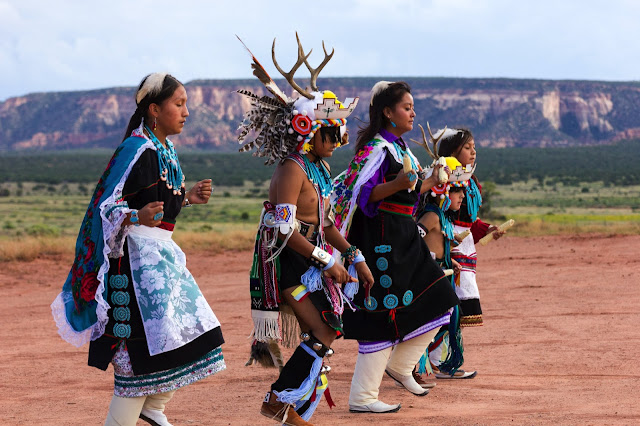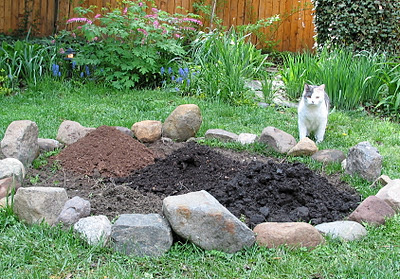Great 2016 Election News: Native Voters Gain Rights
 These two articles—about Nevada and about North Dakota—appeared on Indian Country Today Media Network in 2016.
These two articles—about Nevada and about North Dakota—appeared on Indian Country Today Media Network in 2016. Tribal members had sued in federal court for polling places on their homelands; the voting offices opened on October 22. Lawsuit plaintiff Johnny Walker is shown here after voting on his homeland. Pyramid Lake voters joined a flood of Nevadans casting a ballot during the state’s early-voting period. During the first two days of early voting at Pyramid Lake, turnout had already doubled that of the last presidential election in 2012, according to Hawley.
Meanwhile, at Walker River, in just the first two days of early voting, turnout nearly equaled 2012 totals, according to OJ Semans, the Rosebud Sioux director of Four Directions voting-rights group, which assisted with the lawsuit. Semans called this “empowering the people.”
As chairman of the Inter-Tribal Council of Nevada, Hawley has urged Secretary of State Barbara Cegavske to direct counties to open polling places for nine more tribes, including some where ballot boxes are 200-plus miles away, round trip. Even when polls are nearby, counties typically make accessing their offices uncomfortable for Natives, according to testimony in the Paiute tribes’ federal lawsuit. To remove this barrier to equality, Hawley included in his request urban-Indian communities in Washoe and Clark counties.
Citing “insufficient time” to set up more early-voting places, Nevada Secretary of State Barbara Cegavske has announced that she is turning down Inter-Tribal Council of Nevada’s request for more tribal early-voting offices on additional reservations. Cegavske also revealed another concern that figured in her decision, “[T]here is considerable legal uncertainty as to who would be authorized to investigate and prosecute election law violations occurring on sovereign tribal lands.”
“I take offense,” said OJ Semans, of Four Directions. “This is no more than an outdated and racially charged attempt to insinuate that tribal voters are somehow lawless and beyond control. The Nevada Election Task Force is part of a coalition of state and federal authorities that can handle election problems, no matter where they occur.”
The lawsuit plaintiffs have asked the court to award them their legal fees, which would require the state and counties to pay a tab that already tops $100,000. “We warned them,” said Bret Healy, Four Directions consultant. “The offices cost a few thousand dollars each, while fighting against equal rights is very costly.”
Tribal elder Dorothy Herman voted in North Dakota for more than 40 years. Until 2014, that is, when a new state law meant she couldn’t obtain acceptable identification for that election, no matter how hard she tried. On January 20, 2016, she and six more Native voters who were disenfranchised in 2014 filed a federal lawsuit challenging the state’s recently enacted limitations on the types of documents that can be used to obtain a ballot. The Native American Rights Fund filed the suit on their behalf.
Tribal elder Dorothy Herman voted in North Dakota for more than 40 years. Until 2014, that is, when a new state law meant she couldn’t obtain acceptable identification for that election, no matter how hard she tried. On January 20, 2016, she and six more Native voters who were disenfranchised in 2014 filed a federal lawsuit challenging the state’s recently enacted limitations on the types of documents that can be used to obtain a ballot. The Native American Rights Fund filed the suit on their behalf.
| NARF attorneys John Echohawk (l) and Matthew Campbell |
The Native plaintiffs said the restrictions, passed by the North Dakota legislature in 2013 and tightened further in 2015, disproportionately burdened and even disenfranchised Native American voters who, among other issues, live farther from offices where they can obtain alternative identification and are less likely to have the vehicle needed to get there. Standing Rock residents, for example, drive as many as 120 miles round trip to the nearest office issuing drivers’ licenses. Natives are also poorer and more likely to find the fees and transportation costs prohibitive, the complaint alleged.
By falling more heavily on Native people, said the lawsuit, these burdens violated the Voting Rights Act and the United States and North Dakota constitutions. On August 1, a federal judge agreed and blocked the new law, handing yet another victory to Natives seeking equal rights.
Text c. Stephanie Woodard; photographs courtesy of Four Directions (top) and NARF.

